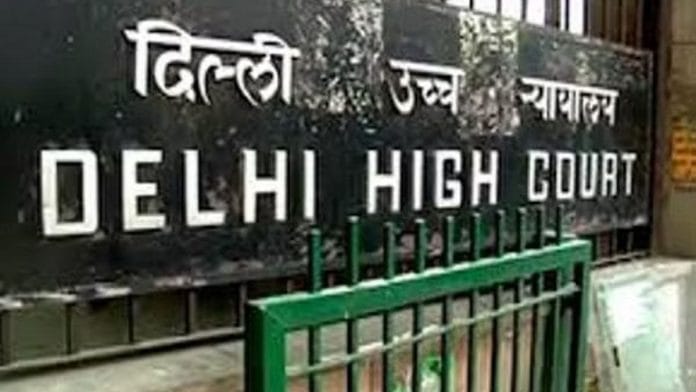New Delhi: From ill-treatment of employees and peddling central government propaganda to misreporting events happening in China and Pakistan and publishing false news about rape by Muslims, several negative observations about Asian News International, or ANI, are up on its Wikipedia page.
Now, the news agency is suing the Wikimedia Foundation, which runs Wikipedia, for defamation, seeking damages of over Rs 2 crore for the foundation’s failure to change the ANI Wikipedia page. Besides monetary damages, ANI has sought an injunction, that is, withholding of content.
In its civil suit, filed before the Delhi High Court Tuesday, ANI has claimed that Wikipedia published “palpably false and defamatory content” about it. ThePrint has obtained a copy of the document.
On Tuesday, a single-judge bench of Justice Navin Chawla issued a summons to Wikimedia and sought its response. The court has fixed 20 August as the date of the next hearing.
ANI has claimed that even though its Wikipedia page initially contained neutral observations, Wikimedia “deliberately edited” the page to include false content, affecting ANI’s credibility.
Citing an instance, ANI has pointed to this statement — “On 20 July 2023, ANI falsely blamed Muslims for the sexual assault and rape of two Kuki women during the 2023 Manipur violence” — on its Wikipedia page.
ANI purportedly attempted to change it to — “Reputable and majority of news organizations in India are subscribers to ANI’s multiple services, which establishes ANI’s credibility and reliability in the media industry.”
However, Wikimedia allegedly removed the change made by ANI, retaining the original statement.
ANI’s civil suit has also alleged that despite multiple attempts by ANI to update and correct the false statements, Wikimedia repeatedly reversed its changes to reflect the defamatory versions again.
“As per the editing history of the ANI page, a series of edits were made to the ANI page in April 2024 describing the true, factual position of [ANI],” the news organisation has submitted.
“However, in May 2024, [Wikimedia] acting through [Wikipedia Administrators], deliberately reversed these edits made on the ANI page, to cause harm and damage to the reputation of [ANI]”, the news agency has added in its submissions before the high court.
ANI has also stated that Wikipedia has now imposed a “protected” status on the ANI page, which means that no ordinary user can remove any statements or alter the content on the platform.
Specifically, ANI has contended that the false content was published with the “malicious intent” of tarnishing its reputation and “discrediting its goodwill”.
ANI has also said that before initiating the suit, it issued a notice to Wikimedia on 13 June to take down the defamatory content. The foundation purportedly received the notice on the same day. But, ANI has alleged, there was no action in response to the notice, and its page remains publicly available.
“Neither [has Wikimedia] adopted any corrective measures to remove the false, misleading, and defamatory content… nor have they issued a reply to the notice…”, ANI has claimed.
ANI issued the notice based on the fact that since Wikimedia is an alleged “intermediary” under the information technology law, it has to fulfil certain obligations, such as taking down such content.
“Intermediaries”, defined broadly under the Information Technology Act, 2000, are people who receive, store, or transmit electronic records or provide similar services. They are protected by “safe harbour” protections, which provide them immunity for content published by third parties.
However, “safe harbour” is not an all-pervasive protection, and “intermediaries” are also bound by certain obligations. These include observing due diligence and publishing their privacy policy online.
If “intermediaries” fail to observe such obligations, they lose the “safe harbour” protections. It means that despite being “intermediaries”, they are held liable under law for content posted on their platform.
It is this condition of “safe harbour” protections or immunity that ANI has relied upon in its suit.
ANI has contended that since Wikimedia actively removed its edits, which reflected the correct position, it should not enjoy safe harbour protections and should be proceeded against under criminal law.
“Safe harbour” has remained a hotly debated issue, and if these protections go, it could create significant obligations for platforms.
Akshat Jain is a student of the National Law University, Delhi, and an intern with ThePrint.
(Edited by Madhurita Goswami)
Also read: What new criminal law says about forensic evidence & how this could put ‘immense stress’ on labs






